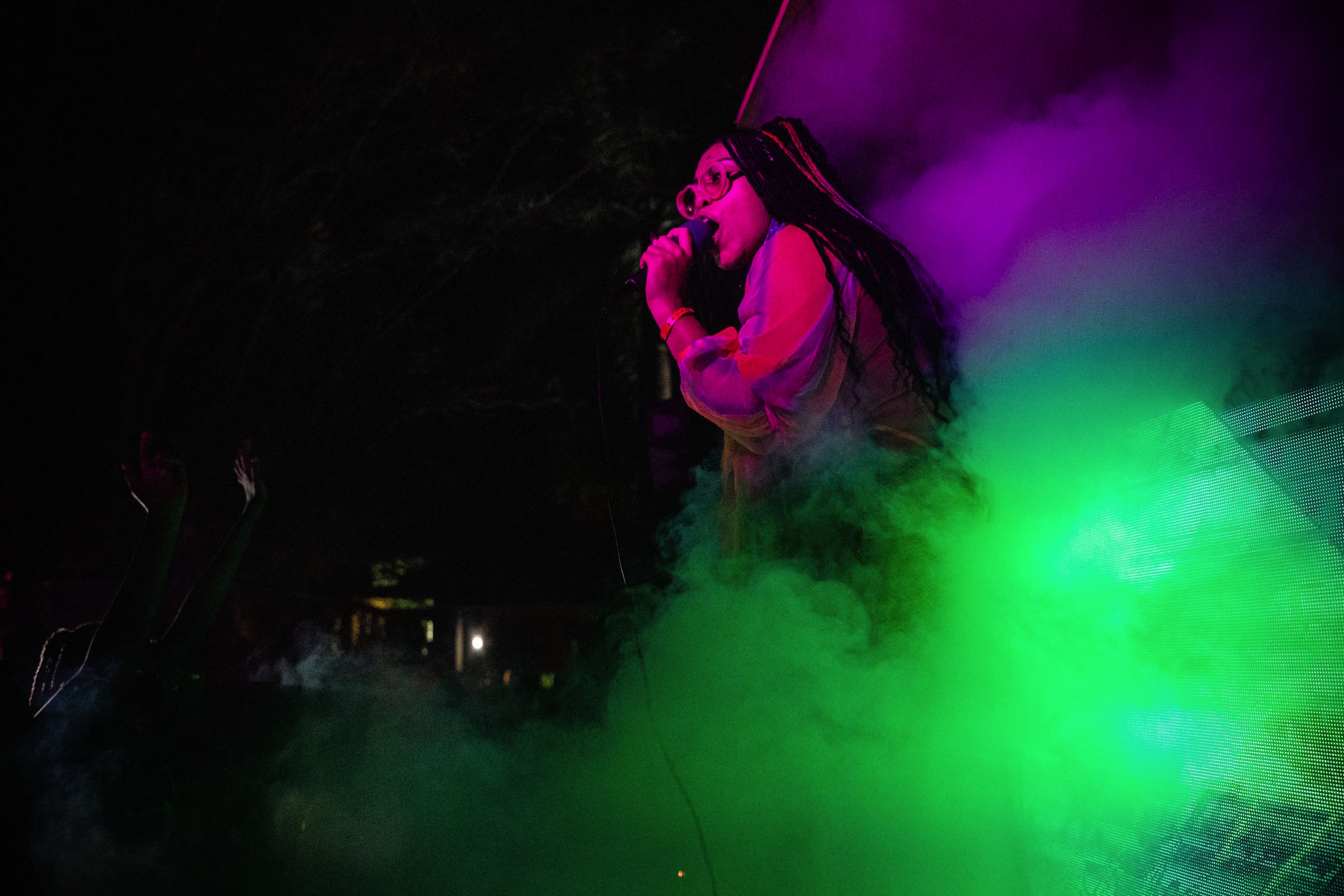“This is the most sure offer I have of doing anything in life right now because I cannot get a job,” said Suzi Analogue (she/they), KLN ’09. From this mindset of perseverance, creativity and survival, her music career was launched.
After graduating from Klein College of Media and Communications’ communications program in 2009, Analogue and the rest of her graduating classmates were left with the seemingly impossible task of finding work as the country was coming out of the Great Recession.
Though she did not study music at Temple University, Analogue connected with other artists in the Philadelphia community through her work at Temple’s radio station, WHIP. There, they were able to promote and share some of their work and explore genres such as hip-hop, soul and electronic dance music.
“It was natural that I wanted to perform but it was through engaging with different artists and interfacing with the music community of Philadelphia that I was able to start to carve out an interesting space for myself,” Analogue said.
While in school, Analogue had paid internships in New York City and was a research assistant for a book written by Klein professor Fabienne Darling-Wolf, but struggled finding more internships, let alone a job, after graduation because of the recession of the late 2000s. While applying for jobs every week, Analogue ended up finding security in her music, which she did not originally plan on pursuing full-time.
While travelling with fellow artists, one of Analogue’s friends asked if they wanted to go on tour and open for Bonobo, one of the top electronic touring artists of the time. Analogue performed her collaborative project Analogue Monsta with electronic artist TOKiMONSTA in over 15 North American cities to sold-out shows and continued pursuing music when the tour was over.
Now, Analogue operates the record label Never Normal Records and strives to give opportunities to artists to produce the music they have always dreamed of sharing with the world. They also helped found the Philadelphia collective Klipmode.
Though she and her peers don’t much look to older generations for mentorship and guidance, Analogue still has a great support system. While at Temple, she studied abroad at Temple University Japan with Darling-Wolf, who taught the Japanese media program every summer.
“She easily made connections with people despite the language and cultural barriers, and it was clear from the start that she was the kind of person who had the ability to create her own path if one was not readily available,” Darling-Wolf wrote.
Another one of Analogue’s earliest (and current) supporters is producer and composer King Britt. Britt and Analogue met over MySpace when Britt reached out to send Analogue respect and admiration. “Suzi is a force of nature,” Britt wrote.
Analogue noted that to this day the class of 2009 faces career struggles because they had to innovate their careers to match the formative times they were in by taking the best options they had. “When things don’t come easy, people are forced to come up with their own solutions, as when Suzi created her own label. In doing so, she not only created a space for herself but for other artists like her,” Darling-Wolf wrote .
“I just get so happy when I see Suzi all over the place because they are pushing for us all,” Britt wrote.

